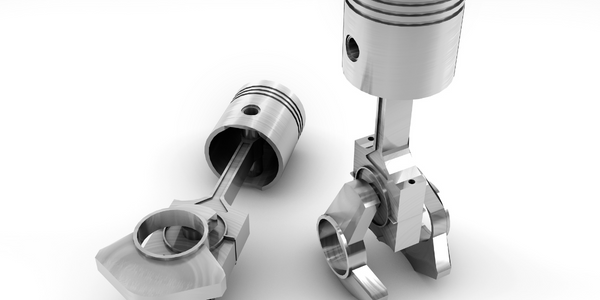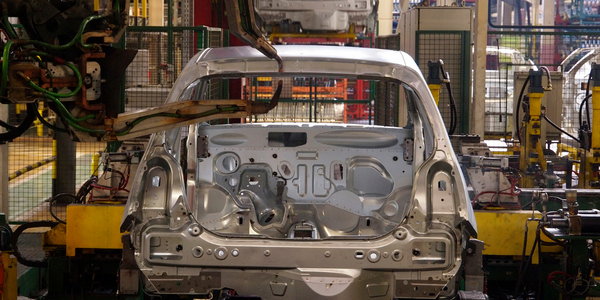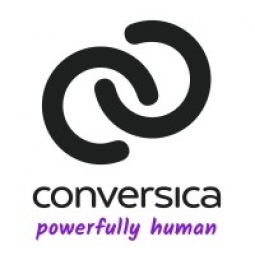Technology Category
- Sensors - Haptic Sensors
Applicable Functions
- Product Research & Development
- Quality Assurance
Use Cases
- Visual Quality Detection
Services
- Testing & Certification
About The Customer
Zend Technologies is a dominant entity in the PHP space, founded by the co-authors of PHP, a widely-used open source scripting language used in almost 50% of all web development. The company provides enterprise-grade PHP solutions and support for development leaders, DevOps, and developers. Zend's customers use its products to improve application performance and quality, speed up release cycles, and mitigate risk. The company's challenge was managing the strong flow of new leads resulting from PHP's popularity, which includes around seven million developers. The leads ranged from students and hobbyists to large enterprises, making it difficult to distinguish between 'good' and 'bad' leads.
The Challenge
Zend Technologies, a leading provider of enterprise-grade PHP solutions, was facing a significant challenge in managing and leveraging their incoming leads. The popularity of PHP, with around seven million developers, resulted in a strong flow of new leads. However, Zend found it impossible to follow up with these leads constructively. Their initial solution, a traditional multi-modal multi-touch arrangement, proved impractical to implement and manage. The sales representatives were not able to make the required number of calls and emails, leading to inadequate coverage. Additionally, the quality of the leads varied greatly, ranging from students and hobbyists to large enterprises. This made it difficult to distinguish between 'good' and 'bad' leads, especially when the information provided by the leads was not always accurate. Zend was in need of a solution that could effectively engage with all these leads without the need to hire additional sales development representatives.
The Solution
Zend Technologies turned to Conversica's AI Sales Assistant to address their lead management challenge. Conversica's AI Sales Assistant, Nicole, was able to bring 'dead' C and D leads back to life with an impressive 18% engagement rate. This solution enhanced the customer experience by facilitating human-like conversations. It also improved opportunity creation across both old and new leads. The AI Sales Assistant was able to consistently engage with the leads, thereby increasing the chances of conversion. It was also able to effectively sift through the leads, identifying the 'good' ones from the 'bad'. This solution provided Zend with a way to touch all their leads, assess them, and follow up constructively without the need to hire additional staff. The AI Sales Assistant proved to be a practical and effective solution to Zend's lead management challenge.
Operational Impact
Quantitative Benefit

Case Study missing?
Start adding your own!
Register with your work email and create a new case study profile for your business.
Related Case Studies.

Case Study
Rapid and Simple Installation Provides Access to Critical Data
The customer needed to monitor non-contact alignment and non-contact process temperature in different positions along a 100-meter production line. Space around the line is tight and operators and forklift trucks are passing by constantly. Installation of correctly routed cables from sensors back to the control station would have been expensive and would have taken too long and caused too much disruption to ongoing operations.
Case Study
Real-Time IoT Tracking and Visualization Improve Manufacturing
Shimane Fujitsu, a wholly-owned subsidiary of Fujitsu and a leading manufacturer of business notebooks and tablets, set out to improve processes where factory inspections found product errors. Prioritizing product rework based on shipping date was challenging, and it caused Shimane Fujitsu to incur additional shipping fees. The company needed a way to collect data to better track the location of products in the rework cycle as well as monitor progress in real time. The collected data would also help process analysis for future improvements.

Case Study
Automatic Vision Inspection Solution for Product Traceability
With greater market demand for food safety, traceability is receiving increasingly more attention in the food and beverage industry as well as the packaging industry. One of the world's leading providers of beverage containers required a system to identify bar codes and alphanumeric characters on ink-jet-printed labels at a run rate of 7 units and minimum 99.9% accuracy. Since there were few engineers in the factory, the customer sought to implement a reliable system with an easy-to-use GUI for workers with a less technical background.

Case Study
Automated Inspection of Axial Piston Motors
Earth moving machines require an immense energy source to provide the power they need for use within civil engineering works. ‘Hydraulic Motors’ allow this power to be applied to enable the machines movement and in addition ‘Control Valves’ also provide the operator with the precise feel and control required to undertake the necessary tasks needed for such machines, including trenching, rock breaking and demolition. These same motors are also used in cranes, wheel loaders and general construction equipment. Though not a new product, the designs of such motors and control valves have been around a few decades, the overall method for manufacture has changed rapidly over the last few years to take account of the need for more modular designs, manufacture and just-in-time manufacturing. Kawasaki Precision Machinery (UK) Ltd based in Plymouth, UK is one of the leading manufacturers of such motors and pumps. They approached Industrial Vision Systems Ltd to come up with a solution to provide automated inspection of such pumps for their semi-automated assembly process. The pumps requiring inspection are at a sub-assembly stage when they are due for the inspection process to take place. Due to the highly modular nature of the construction each part of the pump can have many different derivatives which overall have a different effect on the pump in industrial use. It is therefore critical for the manufacturing process to check all components are the correct type and number for the construction of the pump to begin. Once built it is difficult and costly to rework such units if a fault is detected later in the manufacturing process, therefore automated visual inspection is critical for the success in building quality motors and pumps.

Case Study
Parts Quality Gets Robotic Boost
When manufacturers, such as the world's top car makers and automotive parts suppliers, produce components in their factories, traditional QA testing has been limited to verifying the quality of random parts pulled off the line throughout the day.It was time consuming to perform the detailed tests required, and defective parts could get through despite randomized tests.If a defective part caused a recall or accident, manufacturers could face costly litigation or irreparable damage to their reputation.

Case Study
CleanTelligent Enhances Janitorial Software Solutions with Infor Birst
CleanTelligent Software, a company that aids in-house and contracted janitorial teams in streamlining communication and improving quality control, faced a significant challenge. Their clients were demanding a more dynamic way to present reporting data. The company's software was primarily used to analyze and summarize a custodial team's performance, replacing a highly manual, paper-driven process. However, the initial differences between service providers in the janitorial industry are often unclear, and the cost of switching is comparatively low. This situation led to high client turnover, with a janitorial company's customer lifetime averaging four years or less. CleanTelligent needed to improve the customer experience with dynamic dashboards and reporting, retain customers through predictive analysis, capitalize on advanced analytics capabilities to build market differentiation, and improve client retention rates.







